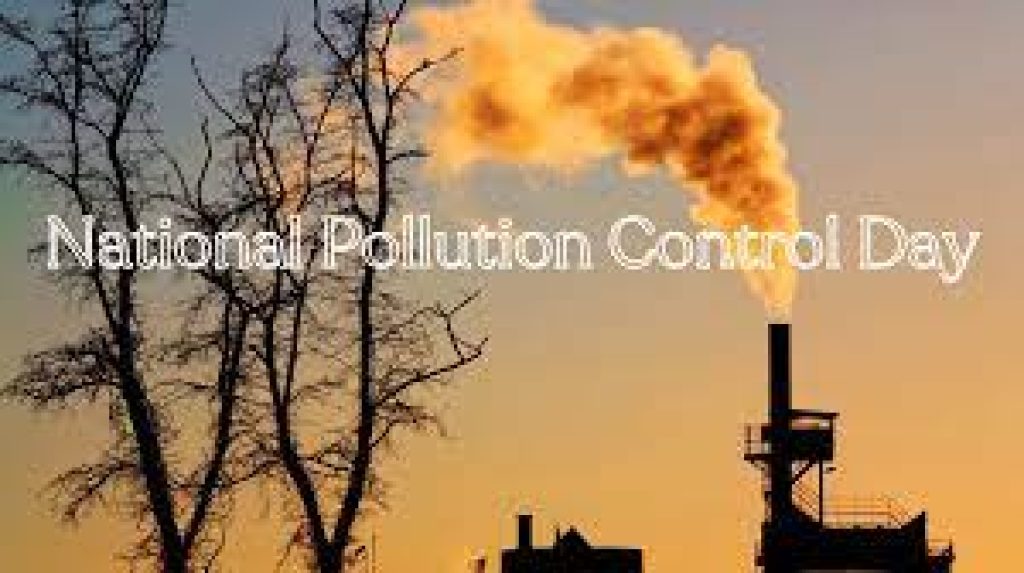National Pollution Control Day 2023, observed on December 2, commemorates the tragic Bhopal Gas incident in 1984. This day serves as a vital reminder of the catastrophic consequences of pollution and aims to raise awareness about the urgent need for pollution control. In 2023, the theme is “Sustainable Development for a Clean and Healthy Planet,” highlighting the interconnectedness of environmental protection and sustainable growth.
National Pollution Control Day 2023 – Theme
The theme of National Pollution Control Day for 2023 is “Sustainable Development for a Clean and Healthy Planet,” underscores the importance of balancing progress with environmental preservation. It calls for holistic approach that prioritize the well-being of both people and the planet, promoting practices that lead to cleaner air, water and land.
National Pollution Control Day 2023 – Historical Background
On the 2nd and 3rd of December 1984, a devastating incident occurred in Bhopal, Madhya Pradesh, where a pesticide plant operated by Union Cabinet India Limited (UCIL) released poisonous chemicals, including Methyl Isocyanate (MIC). This tragic event had severe consequences, impacting over 500,000 individuals. Immediate casualties amounted to approximately 2,259, but later declarations by the Madhya Pradesh government suggested that around 25,000 people lost their lives. Globally recognized as one of the most significant industrial disasters in history, the Bhopal Gas Tragedy left an indelible mark on the collective memory.
National Pollution Control Day 2023 – Significance
The primary purpose of celebrating National Pollution Control Day is to prevent industrial disasters and mitigate pollution levels. Governments worldwide enact laws and regulations to curb pollution, emphasizing the need for collective action to protect the environment.
Objectives of National Pollution Control Day
The main objectives of National Pollution Control Day include creating awareness especially within industries responsible for water, air, soil and noise pollution. Reflecting on the Bhopal Gas Tragedy, caused by the release of poisonous gas ‘Methyl Isocyanate (MIC),’ underscores the urgency of educating industries and the public on pollution’s far-reaching consequences.
The Role of National Pollution Control Board
The National Pollution Control Board (NPCB) plays a pivotal role in enforcing environmental regulations. Regular checks on industries ensure compliance with these regulations and the NPCB serves as the main governing body overseeing pollution control measures.
Preventive Measures Taken by the Government
There are various measures, the government has taken against the pollution. These are listed below:
– Water (Prevention & Control of Pollution) Act of 1974
– Water (Prevention & Control of Pollution) Cess Act of 1977
– Air (Prevention & Control of Pollution) Act of 1981
– Environment (Protection) Rules of 1986
– Environment (Protection) Act of 1986
– Manufacture, Storage and Import of Hazardous Chemical Rules of1989
– Hazardous Waste (Management & Handling) Rules of 1989
– Manufacture, Storage, Import, Export & Storage of Hazardous Micro- Organisms Genetically Engineered Organisms or Cells Rules of 1989
– The National Environment Tribunal Act 1995
– Chemical Accidents (Emergency, Planning, Preparedness, and Response) Rules of 1996
– Bio-Medical Waste (Management & Handling) Rules of 1998
– Recycled Plastics Manufacture & Usage Rules of 1999
– Ozone Depleting Substances (Regulation) Rules of 2000
– Noise Pollution (Regulation & Control) Rules of 2000
– Municipal Solid Waste (Management & Handling) Rules of 2000
– Batteries (Management & Handling) Rules of 2001.
– Maharashtra Bio-Degradable Garbage (Control) Ordinance of 2006
– Environment Impact Assessment Notification of 2006
Ways to Reduce Pollution
- Implementing effective treatment and management strategies for solid waste is a key measure to diminish pollution.
- The utilization of Biochemical waste facilities presents an opportunity to minimize pollution by enabling the reutilization of waste materials.
- Addressing electronic waste through proper treatment methods is crucial for reducing pollution associated with electronic components.
- The adoption of the Clean Development Mechanism Project is instrumental in mitigating pollution in urban areas.
